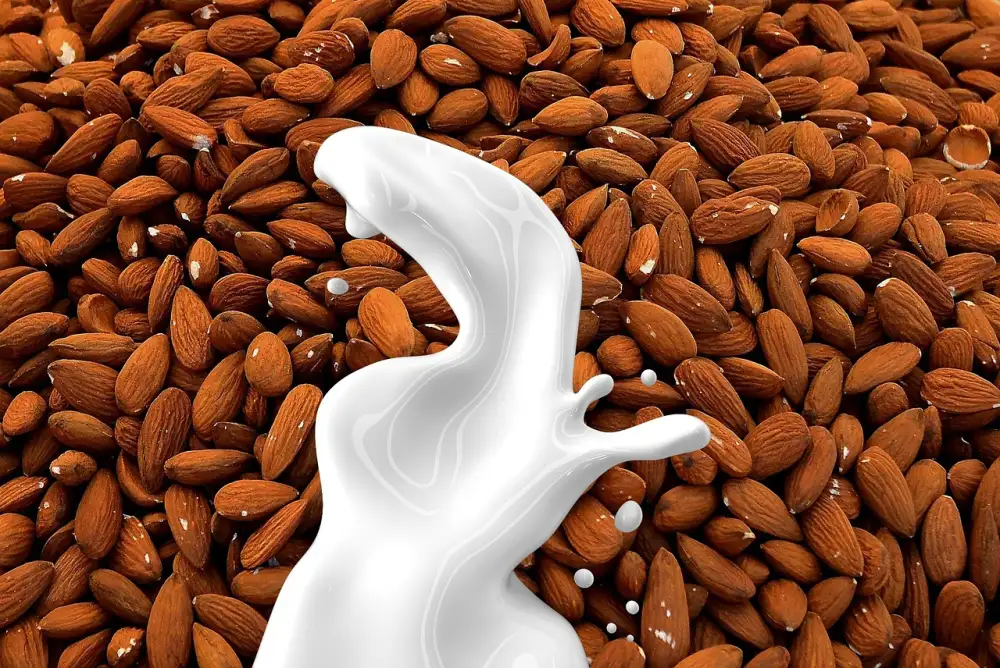Unveiling the Shelf Life of Almond Milk: Does Almond Milk Go Bad? Find Out the Telltale Signs of Spoilage

Almond milk, a popular dairy-free alternative, has gained immense popularity in recent years. However, like any other perishable product, almond milk also has a limited shelf life. It is important for consumers to understand how long almond milk lasts and the factors that can affect its freshness. By being aware of these factors and knowing the signs of spoilage, you can ensure that you are consuming fresh and safe almond milk. In this article, we will delve into the shelf life of almond milk and provide tips on proper storage to help you enjoy this nutritious beverage at its best.
How Long Does Almond Milk Last?
How long does almond milk last? The shelf life of almond milk depends on several factors. Unopened almond milk can typically last up to a week past the printed expiration date when stored in the refrigerator at a constant temperature. However, once opened, almond milk should be consumed within 7-10 days for optimal freshness and taste. It is important to check the expiration date on the packaging and use it as a guideline for consumption.
Factors Affecting the Shelf Life of Almond Milk
The shelf life of almond milk can vary depending on several factors. One important factor is the packaging of the almond milk. Almond milk that comes in aseptic packaging, such as Tetra Pak, tends to have a longer shelf life compared to almond milk in cartons or bottles.
Another factor that affects the shelf life is the presence of additives and preservatives. Almond milk with added preservatives can last longer than those without. However, it is important to note that some individuals prefer preservative-free options for health reasons.
Additionally, the storage conditions play a crucial role in determining how long almond milk will last. Almond milk should be stored in a cool and dry place away from direct sunlight and heat sources. Exposure to light and heat can accelerate spoilage.
Furthermore, the freshness of the almonds used to make the milk also impacts its shelf life. Almond milk made from fresh almonds will generally have a longer shelf life compared to those made from older or stale almonds.
It's worth mentioning that once opened, almond milk should be consumed within a certain timeframe regardless of these factors. It is recommended to check the expiration date on the package and follow any instructions provided by the manufacturer for optimal freshness.
By understanding these factors, you can make informed decisions about purchasing and storing almond milk to ensure its maximum shelf life and quality.
Signs of Spoilage in Almond Milk
It is important to be able to identify the signs of spoilage in almond milk to ensure that you are consuming a safe and fresh product. Here are some telltale signs that your almond milk has gone bad:
1. Foul odor: If your almond milk has a sour or unpleasant smell, it is likely spoiled. Fresh almond milk should have a mild, nutty aroma.
2. Chunky texture: When almond milk goes bad, it can become lumpy or curdled. If you notice any clumps or an uneven texture, it is best to discard it.
3. Separation: Almond milk may naturally separate over time, but if there is excessive separation with a watery layer on top and thick sediment at the bottom, it is a sign of spoilage.
4. Off taste: Spoiled almond milk may have a bitter or off taste. If your almond milk tastes different than usual or unpleasant, it is better to err on the side of caution and not consume it.
5. Mold growth: Visible mold growth is an obvious indication that your almond milk has spoiled. Mold can appear as green, black, or white patches on the surface of the liquid.
If you notice any of these signs in your almond milk, it is crucial to discard it immediately as consuming spoiled almond milk can lead to foodborne illnesses. Always prioritize your health and safety by checking for these signs before consuming almond milk.
Proper Storage Tips for Almond Milk
Proper storage is key to maintaining the freshness and quality of almond milk. Here are some tips to ensure that your almond milk stays safe to consume for as long as possible:
1. Refrigeration: Always store almond milk in the refrigerator, even if it is unopened. The cold temperature helps slow down the growth of bacteria and extends its shelf life.
2. Check the expiration date: Before purchasing almond milk, check the expiration date on the packaging. Make sure you consume it before this date to enjoy its optimal flavor and quality.
3. Seal tightly: After opening a carton or bottle of almond milk, make sure to reseal it tightly after each use. This prevents air from entering and keeps contaminants out.
4. Avoid cross-contamination: To prevent spoilage, avoid using dirty utensils or cups when pouring almond milk. Also, never return unused portions back into the original container as it can introduce bacteria.
5. Store away from strong odors: Almond milk can absorb strong odors from other foods in your refrigerator, affecting its taste and aroma. Keep it away from pungent items like onions or garlic.
By following these storage tips, you can maximize the shelf life of your almond milk and enjoy a fresh and delicious beverage every time you pour yourself a glass!
In conclusion, it is important to be aware of the shelf life of almond milk in order to ensure its freshness and safety. By understanding how long almond milk lasts and the factors that can affect its shelf life, you can make informed decisions about consuming it.
Remember to always check for signs of spoilage before consuming almond milk, such as changes in color, texture, or smell. If any of these signs are present, it is best to discard the almond milk to avoid any potential health risks.
Proper storage is key in maintaining the quality of almond milk. Keep it refrigerated at all times and consume it within the recommended time frame. Avoid leaving it at room temperature for extended periods or exposing it to direct sunlight.
By following these guidelines, you can enjoy fresh and safe almond milk for a longer period of time. So go ahead, indulge in this delicious dairy-free alternative with peace of mind knowing that you are savoring a product that is both flavorful and safe for consumption.
Published: 09. 12. 2023
Category: Health



